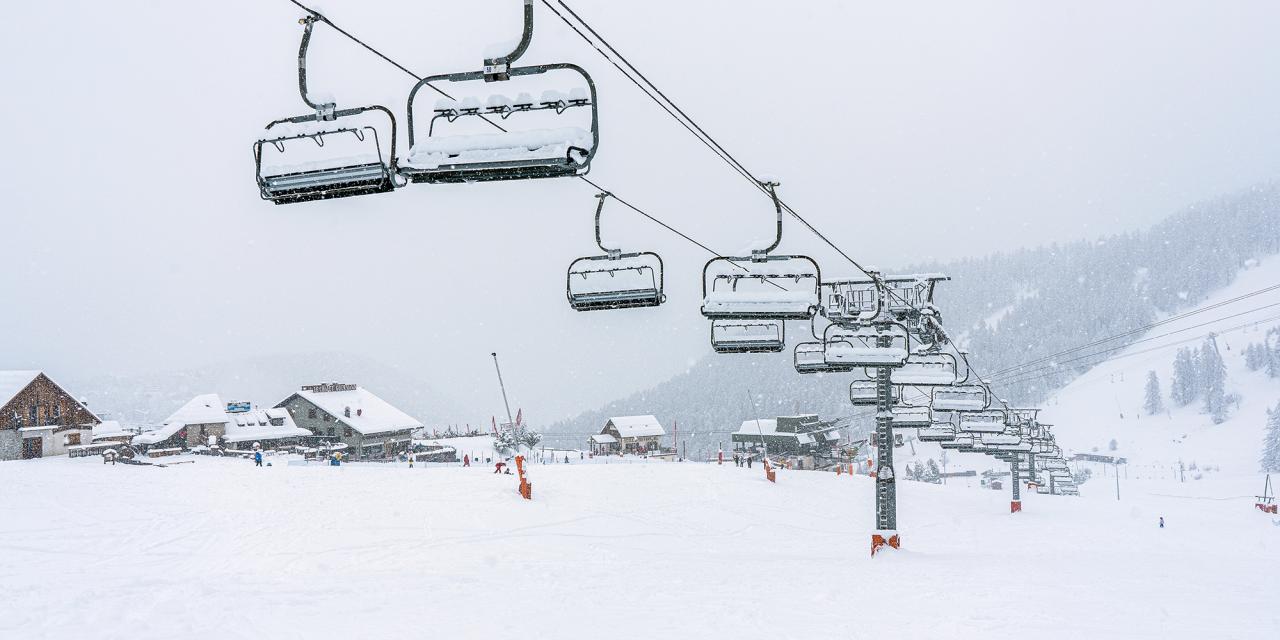The European Consumer Centres Network (ECC-Net) regularly organises "study visits" where the centres exchange information on current consumer issues in participating countries in order to be able to offer domestic and foreign consumers the best possible legal advice on cross-border issues. The last online conference between Austria, Germany, Italy, France and Luxembourg focused on ski tourism. In Austria, the ECC is located in the Association for Consumer Information (VKI).
The following rules apply in EU countries:
Austria: Open slopes but inaccessible for foreigners
Our country is hardly accessible to winter tourists from abroad. The ski areas are open despite lockdown regulations, but foreign tourists hardly benefit from this. Those entering the country must observe a 10-day quarantine, which can be terminated early with a negative PCR test carried out on site after 5 days. Those entering the country have to register personal data and stays of the last 10 days in the "Pre-Travel Clearance". However, until 7 February for the time being, skiing and arriving at the ski resort on the same day is permitted. Since restaurants, hotels, leisure and cultural facilities are closed, there is no accommodation available for tourists until the end of February. Private accommodation is also not permitted for tourist purposes and exit restrictions apply. Take-away food is only possible where there are access roads, so on the mountain it is usually not allowed. FFP2 masks must be worn in enclosed stations and lifts (gondola, coverable chairlift) and lifts may only be 50% occupied. Mouth-nose masks are mandatory when queuing and a general safety distance of two metres applies.
As a result of the restriction to day tourism, eastern ski resorts close to big cities are crowded, especially at weekends, and those in western federal states are considering temporary closures due to unprofitability, as the usual German and Dutch guests are not coming.
Italy: Reopening planned for mid-February
Ski resorts in South Tyrol are all closed, but are scheduled to reopen throughout Italy on 15.2.2021. However, the government in Italy has just resigned and rules can change at short notice. To enter the country, you have to register with the local health office and you need a negative test, no older than 48 hours, otherwise you have to stay in quarantine for 14 days.
Hiking or other activities away from the ski slopes are theoretically possible, as tourists are allowed to enter. In fact, this has led to a boom in (ski) touring, as mountain huts are currently allowed to stay open and touring equipment is hardly available in the region. From Sunday (31.1.2021), the gastronomy in South Tyrol will close for 2 weeks, it was decided the day before yesterday (26.1.2021).
Germany: No skiing
Skiing on slopes is not possible up to and including 14 February. Due to the current lockdown, mountain railways and ski lifts will remain closed for that long and probably beyond. Yesterday (27 January 2021), the Bavarian Administrative Court overturned the 15-km rule that restricted travel throughout Germany to a minimum. Thus, travelling to cross-country skiing trails for a day trip would be possible again. However, Germany also has a quarantine requirement for foreigners from risk areas such as Austria. The German entry regulations are almost the same as the Austrian ones (digital entry registration, a test no more than 48 hours old, 5 days quarantine if the test is negative, otherwise 10 days).
France: Opening cancelled again
On entry, a PCR test (maximum 72 hours old) and a week's quarantine with final retesting are compulsory. There is no lockdown in France but an evening curfew from 6pm in urban areas. Ski tourists are allowed to travel to the French Alps, but the possible opening of lifts announced for 1 February has been withdrawn. A postponement of the opening of lifts from mid or late February seems very unlikely announced Tourism Minister Lemoyne and the season has thus been unofficially written off. The occupancy rate of ski resorts with closed lifts is currently at most 20%.
Luxembourg: No restrictions but also no offer
Curiously, there are no travel restrictions or quarantine obligations here. Apart from a few cross-country ski trails in Ösling, however, there are no skiing opportunities in the country.
What do I do with my ski pass or season ticket?
In many European countries, the ski season had to end early last year. Skiers were therefore unable to make full use of their season ticket or pass and got less for their money. Legal departments of national consumer protection organisations from Italy and Austria (VKI) have addressed this problem.
We recommend claiming a proportional refund for the unused time from the operator of the foreign ski resort. It is best to do this in writing, for example by e-mail, in order to have proof. Some providers respond to this and grant at least a partial refund or credit the amount to the new season ticket.
It is worth taking a look at the general terms and conditions (AGB) before buying. Some operators argue that the length of a season is not guaranteed anyway. Recently, many lift operators have special corona clauses in the GTCs.
The legal situation is almost hopeless if the ski resort is open but you are not allowed to enter the country. In this case, the ski stations fulfil their part of the contractually agreed service (lifts, slopes, etc.). If the winter sportsman cannot enter or stay overnight, this is his own problem, so to speak. The chances of a refund are therefore slim.









